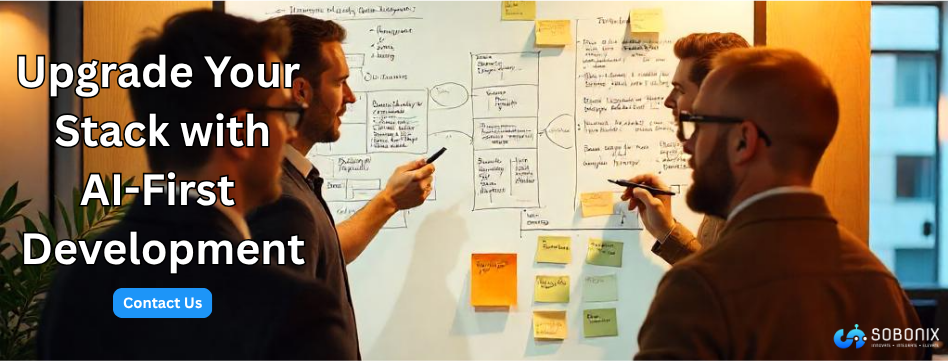Will AI Coding Agents Replace Developers? Tools, Trends & Stats for 2025
Explore how AI coding agents are transforming software development in 2025. From automating routine tasks to boosting productivity, discover the tools, emerging trends, and key stats shaping the future of coding—and what it means for developers

From Copilot to Devin, AI agents are transforming software development. But are they just helpful tools, or the new standard in programming?
Introduction: Why This Conversation Matters Now
AI coding agents have moved from experimental toys to production-ready collaborators. From GitHub Copilot to Devin, these tools can now plan, write, debug, and even deploy code. With businesses and developers worldwide integrating them into workflows, the big question isn’t if AI will affect software development—it’s how much and what developers need to do about it.
In this post, we’ll explore what makes AI coding agents powerful, whether they empower or replace developers, and how professionals can adapt to this fast-changing landscape.
1. What Are AI Coding Agents (in 2025 Terms)?
AI coding agents are not just autocomplete tools anymore. They:
- Understand context from files, APIs, tickets, and even conversations.
- Collaborate across tasks like code generation, bug fixing, and testing.
- Some, like Devin AI or SWE-agent, even plan and execute full-stack engineering tasks.
We’ve now entered the age of agentic software development, where the AI is not just assisting—it’s actively making engineering decisions.
2. Do AI Coding Agents Replace or Empower Developers? (With Data)
According to a 2024 study by GitHub and MIT:
- Developers using Copilot completed tasks 56% faster.
- AI wrote 30% of all Python functions in the U.S.
- Developers who iteratively refined prompts with AI agents had 71% higher success rates (UC San Diego, 2024).
Far from replacing developers, AI agents act as productivity amplifiers. However, they do change what developers do: from writing boilerplate to reviewing, prompting, and debugging AI-generated output.
Pro Tip: Treat your AI agent like an intern—use it to move faster, but always verify its output.
3. Regional Trends: Who's Using AI Agents and Where?
AI coding agents aren’t equally adopted everywhere:
- 🇺🇸 U.S. – 30%
- 🇮🇳 India – 21%
- 🇧🇷 Brazil – 11%
- 🇨🇳 China – 9%
Barriers include infrastructure gaps, language limitations, and high LLM API costs.
Implication: Regions investing in AI literacy and infra will gain a long-term edge in software competitiveness.
4. Multi-Agent Collaboration: The Next Leap
Tools like SWE-agent and OpenHands introduced the idea of multi-agent orchestration, where multiple specialized AIs handle planning, coding, debugging, and testing in parallel.
Imagine this pipeline:
- Agent 1: Understands Jira ticket and plans the task
- Agent 2: Writes code and comments
- Agent 3: Runs tests, fixes errors
- Agent 4: Prepares PR, writes documentation
This isn’t sci-fi. OpenHands' CodeAct v2.1 reportedly resolved up to 53% of GitHub issues in early testing (pending public release of full data). The real innovation is not a single agent but teams of agents working with you.
5. Challenges: Trust, Accuracy, and Accountability
Despite promise, there are real challenges:
- Hallucinations: Agents may generate incorrect or insecure code
- Security: Lack of verification, dependency injection risks
- Accountability: Who owns the output? What if it breaks?
- Overreliance: Juniors may stop learning the fundamentals
According to Stanford & UC Berkeley (2024):
- 41% of AI-generated code had at least one bug or vulnerability
- Only 63% of AI code passed required tests without human review
Best practice: Always review, test, and sanitize output from AI agents.
6. From Developer to AI Conductor: A New Role
Software development is evolving:
- Prompt engineering becomes a core dev skill
- Reviewing and debugging AI output is critical
- Developers need to think like AI system architects: designing workflows that combine human judgment and AI scale
We’re not just coding anymore—we’re conducting.
7. What Should Developers Do Now?
- Master the tools: Use Copilot, Devin, Cursor, or SWE-agent daily
- Get good at prompting: Treat LLMs like conversation partners, not command lines
- Contribute to AI workflows: Learn prompt chaining and agent orchestration
- Stay critical: Always verify what the AI writes before deploying
At Sobonix, we help teams integrate AI-first tools and workflows into scalable, modern development environments.
Conclusion: Not Replacement, but Revolution
AI coding agents are not here to take jobs—they’re here to redefine them. Like compilers, IDEs, or version control, they represent a major shift in how software is built.
The developers who thrive in this new era will be those who embrace agents as teammates—not as threats.
Need help integrating AI agents into your development workflow?
At Sobonix, we help engineering teams build smarter systems using AI-driven automation, coding agents, and custom dev pipelines.
👉 Explore our work or contact us to get started.
FAQ
Q1: What is AI coding?
AI coding is the use of artificial intelligence tools to assist in writing, debugging, and optimizing code. It enables faster development by automating repetitive tasks and suggesting efficient solutions.
Q2: What are the best AI coding tools in 2025?
Top AI coding tools in 2025 include GitHub Copilot X, ChatGPT for Developers (GPT-5), Amazon CodeWhisperer 2.0, Tabnine AI, and Replit Ghostwriter Pro.
Q3: Will AI coding replace developers?
No. AI coding enhances developers’ productivity but cannot replace human creativity, business understanding, and decision-making. Developers are transitioning to more strategic, AI-augmented roles.
Q4: How is AI coding used in businesses?
Businesses use AI coding for automated code generation, bug fixing, documentation, security scanning, and translating logic from natural language into executable code.
Q5: What are the benefits of AI coding?
AI coding speeds up release cycles, reduces debugging time, improves code quality, and allows developers to focus on high-level problem-solving.
